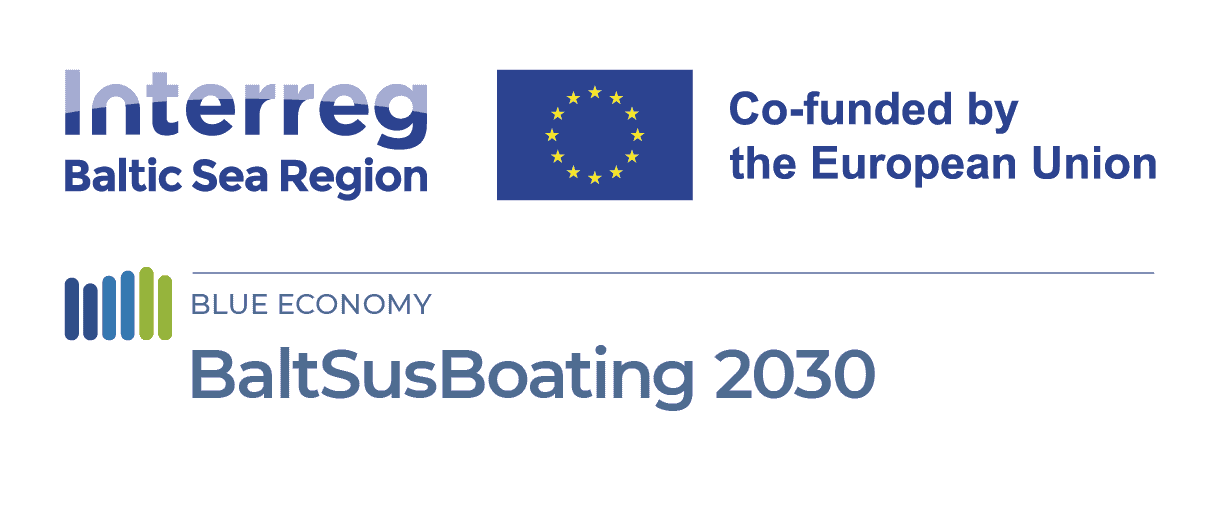
Discussing the benefits the marinas can bring to the Baltic Sea Region
15 May 2024
On 26 th of April the BaltSusBoating 2030 project team participated in Mission Arena 2 in Riga, leading the workshop “What do marinas and leisure boating bring to the region? Sustainable tourism and blue economy in the Baltic Sea area”.
This time Mission Arena focused on Estonia, Latvia, Lithuania, Finland and East Sweden and brought together approximately 200 participants.
The BaltSusBoating 2030 project collaborated with Swedish Institute for the Marine Environment (Eko Marina project) and Baltic Sea2Land projects to co-create a workshop.
The session, moderated by our own Jūlija Jaunrodziņa (Riga Planning Region), started with four thought-provoking and inspiring presentations by Jane Ihrfors (IVL), Ardo Robijn (IVL), Andris Klepers (Vidzeme University of Applied Sciences) and Janis Megnis (Engure marina).
The speakers set the context by outlining the importance of leisure boating, harbours and marinas to blue tourism and economical development for the region. They also demonstrated eco-friendly practices and highlighted some key challenges and impacts.
The question is, therefore, how we can ensure the development in the sustainable way that everybody can benefit from. This was further discussed in groups and the conclusions were presented in the panel-discussion.
Some of the points that were highlighted during the session:
1. Enhance Marinas and Coastal Community Development: Recognize marinas as central to local economic and community vitality, tailor strategies to their unique needs, and improve accessibility to these facilities. Use marinas as hubs to foster job creation, attract small and medium-sized enterprises (SMEs), and engage youth in sustainable maritime activities.
2. Strengthen Data Collection and Promote Sustainable Practices: It is important to support comprehensive research to understand and address the economic, social, and
environmental impacts on coastal communities. Encouraging sustainable leisure boating practices, including the use of alternative fuels and sustainable infrastructure, is essential to minimise the environmental footprint.
3. Facilitate Collaboration and Diversify Tourism Activities: Promoting stakeholder collaboration is key to developing circular business models in sectors like fishing, farming, and tourism. This will enhance community empowerment and sustainability. Diversifying tourism seasons and activities is also important to reduce peak season pressures and extend economic benefits throughout the year.
4. Strategic Planning and Education: Implement strategic planning at local, regional, and international levels to balance tourism and environmental conservation, ensuring the resilience and prosperity of coastal areas. Foster a culture of responsible tourism through education, awareness, and community responsibility.
The action points extracted from each workshop in Mission Arena are be published in the Roadmap.





